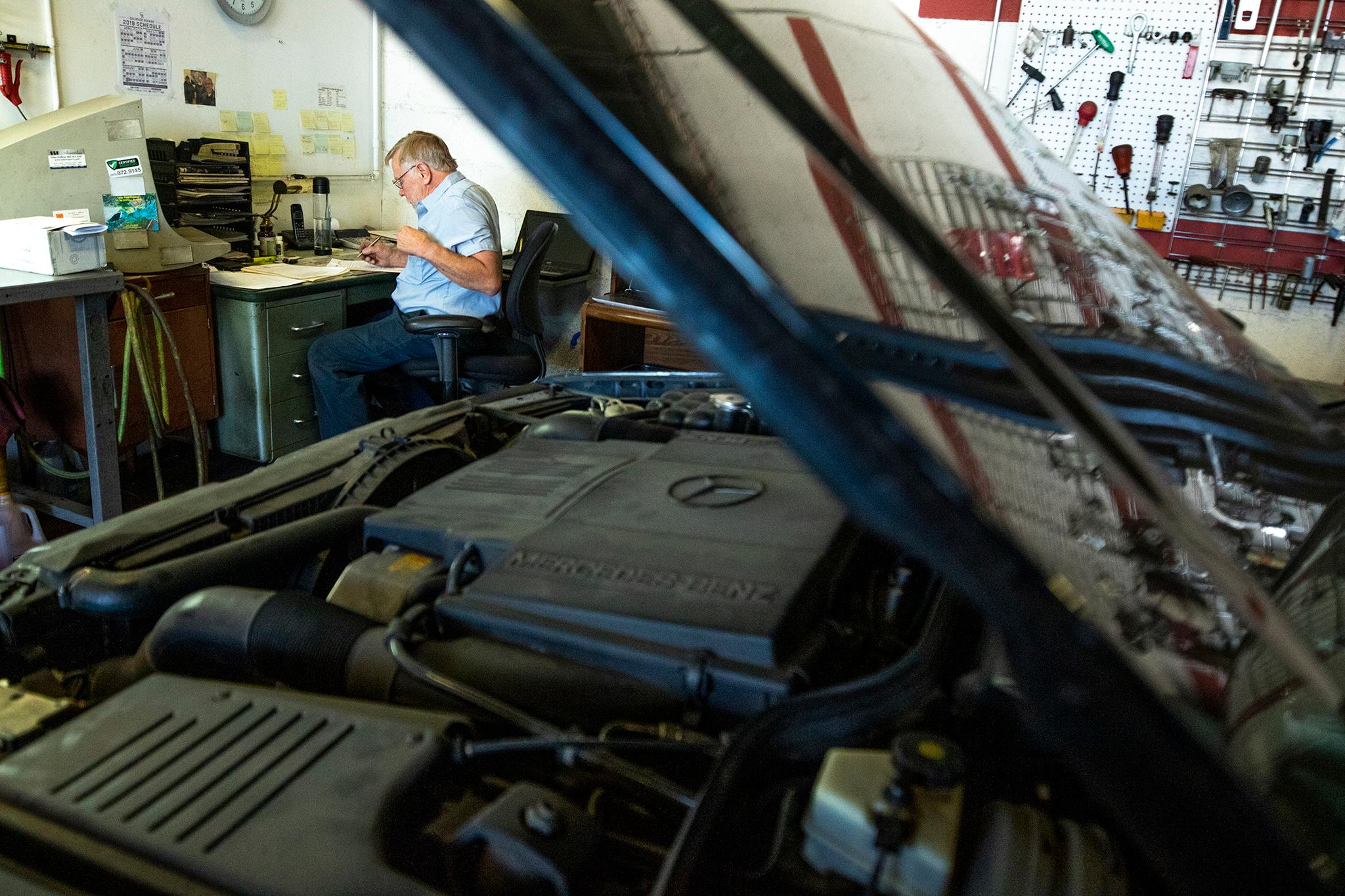Bike and catalytic converter thefts may be two of the most talked about issues on neighborhood Facebook groups and NextDoor. One person in the private Park Hill Neighborhood group even said that their bike and converter had been stolen in the same week.
In June, thefts of both were heading toward their cyclical increases, with converter thefts hitting historic highs.
Let's start with bike thefts.
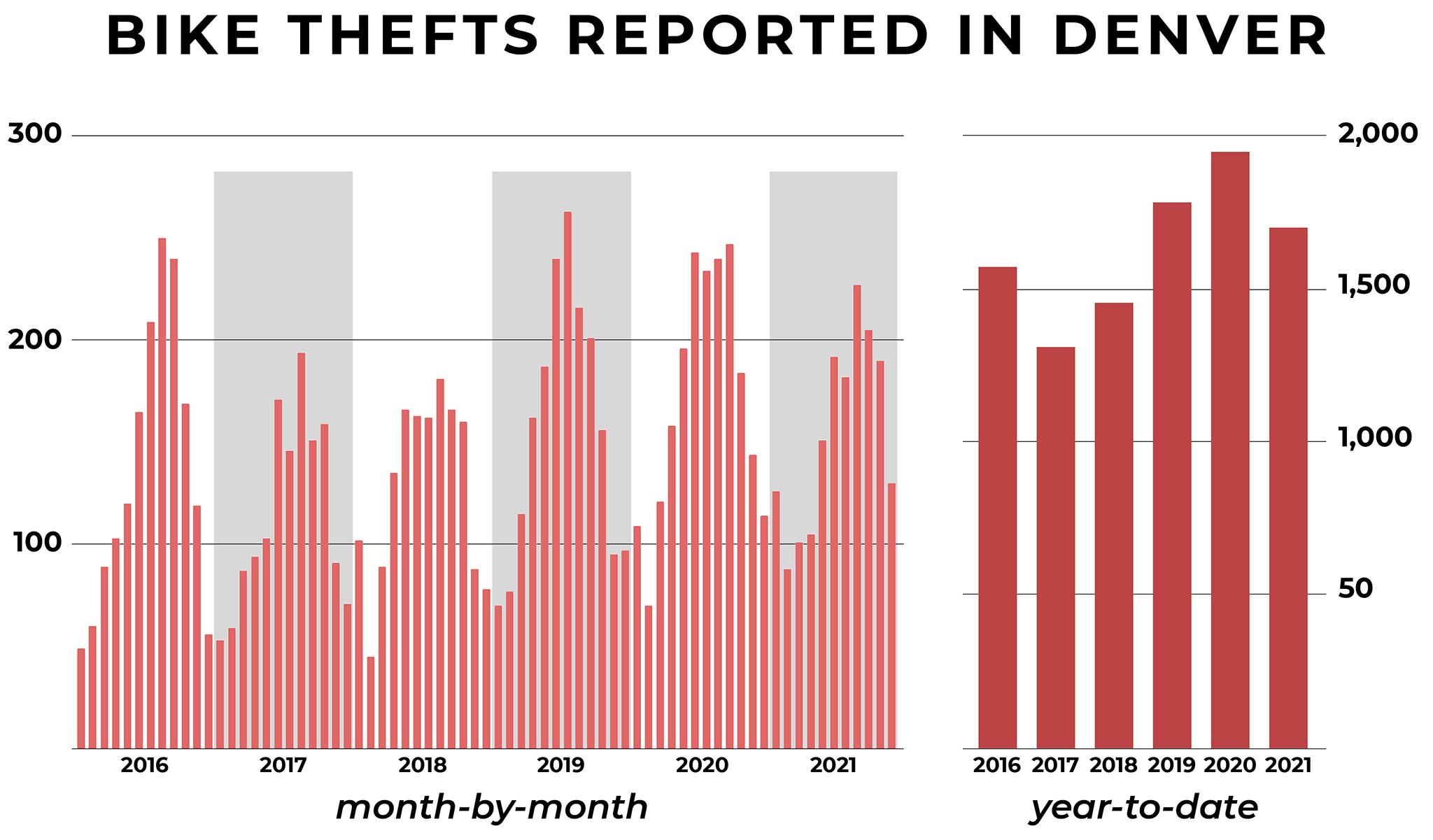
Bike thefts have risen in the city by 49% since 2017, and in 2020, Denver saw a record-breaking rise with 1,946 bikes stolen. In 2019, that number was 1,782.
But bike riders can rejoice. Just a little. This year, bike thefts have slightly decreased. As of mid-November, 1,697 bikes have been stolen.
The summer numbers also decreased. During the summer of 2020 (between June and September), 964 bikes were reported stolen. This year, 806 bikes were taken.
Five Points continues to be the hardest hit area with approximately 195 thefts, up from 62 at the end of May.
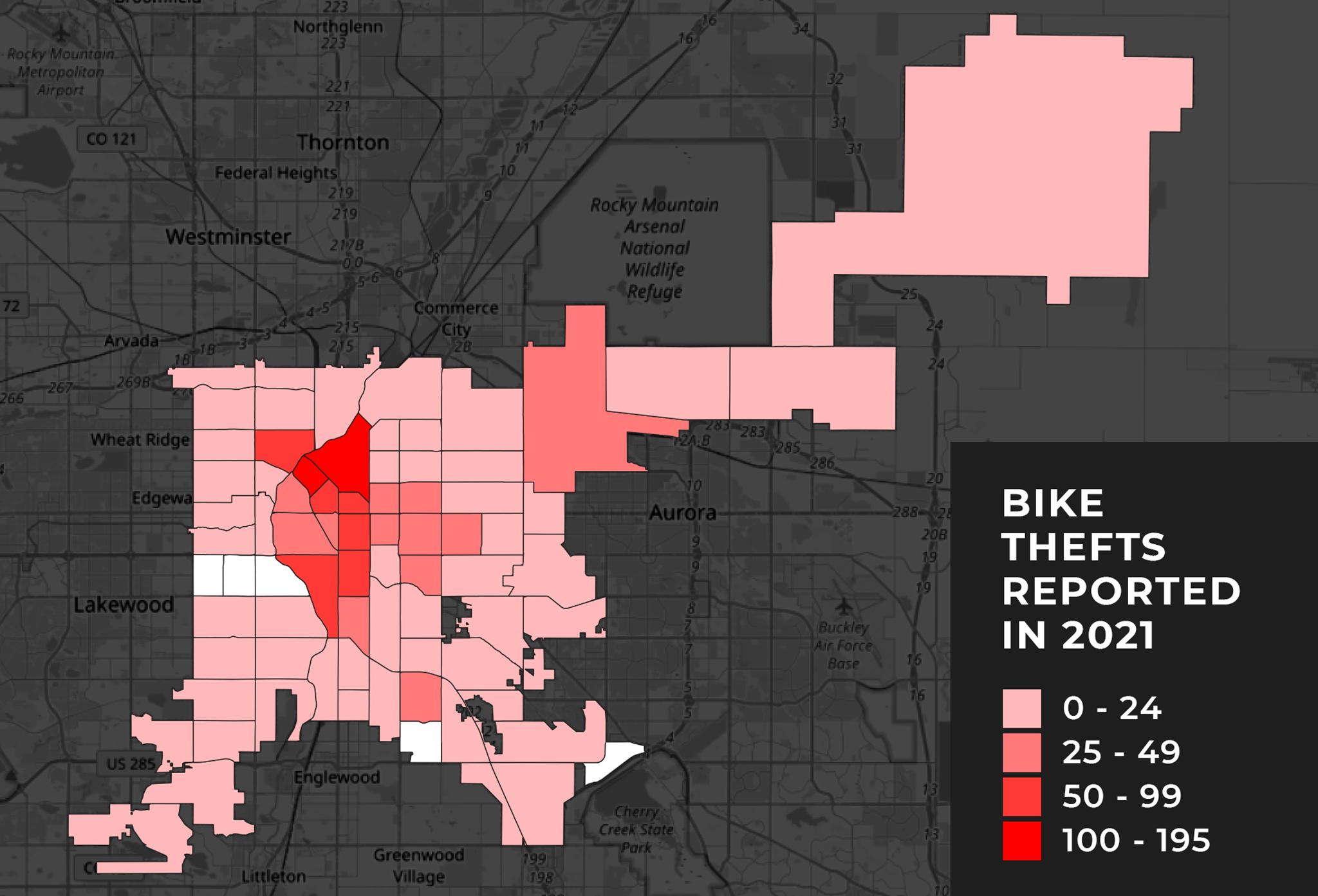
Denver Police spokesperson Jay Casillas previously told Denverite that registering a bike with the police is the number one way to ensure that a bike is returned if stolen.
Besides registering, bikes should be secured with a quality lock, and owners should take multiple pictures with their bikes for evidence and keep the serial numbers close at hand.
"Follow the safety tips," Casillas said. "Those aren't 100% either, but if your bike does get stolen, if you have taken those steps to document your bike, there's a higher probability that you will get your bike back."
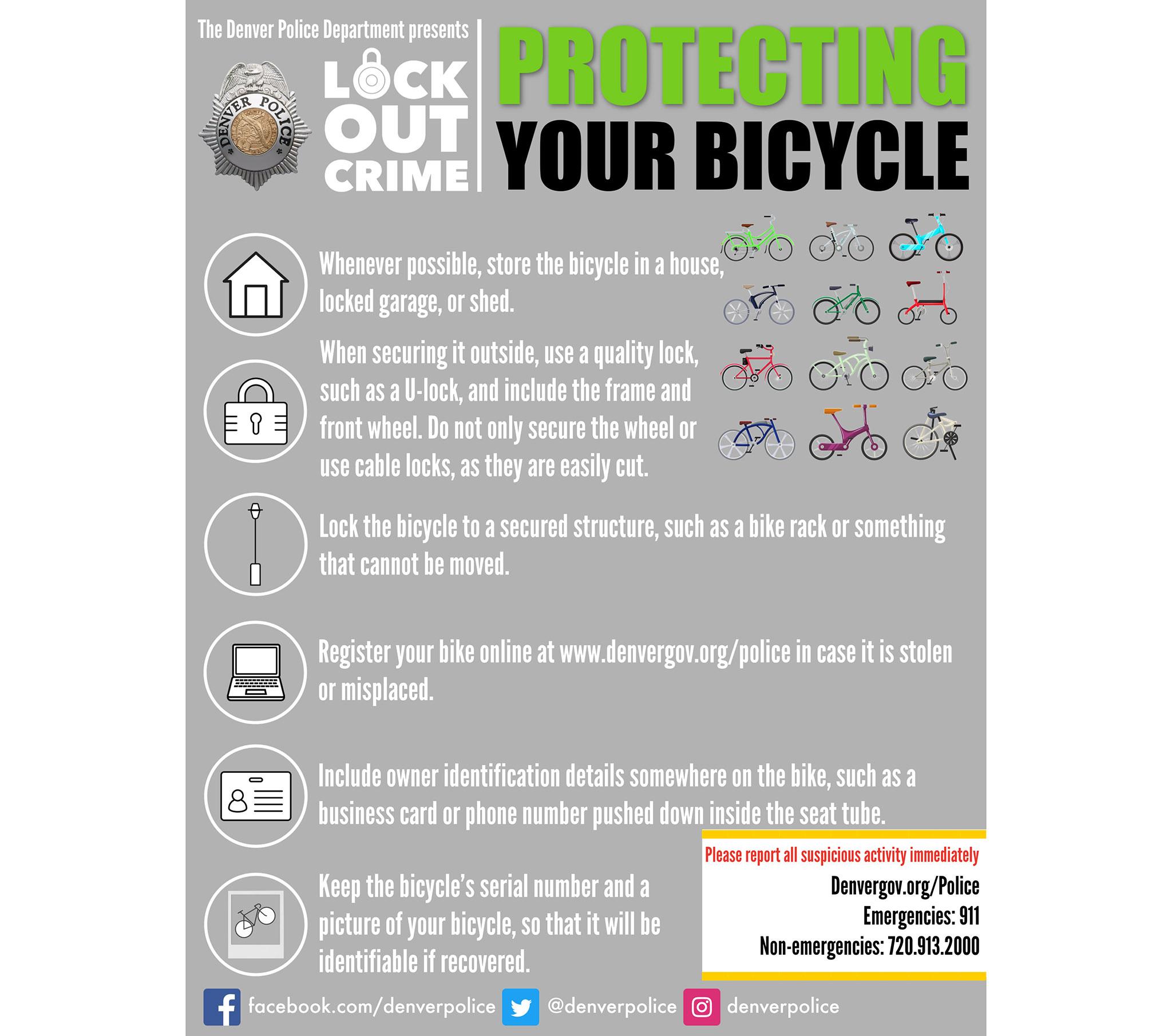
Catalytic converter thefts, on the other hand, aren't decreasing.
In 2019, only 14 converters were reported stolen. As of mid-November, 2,359 converters were taken. For the statisticians, that's a 16,750% increase.
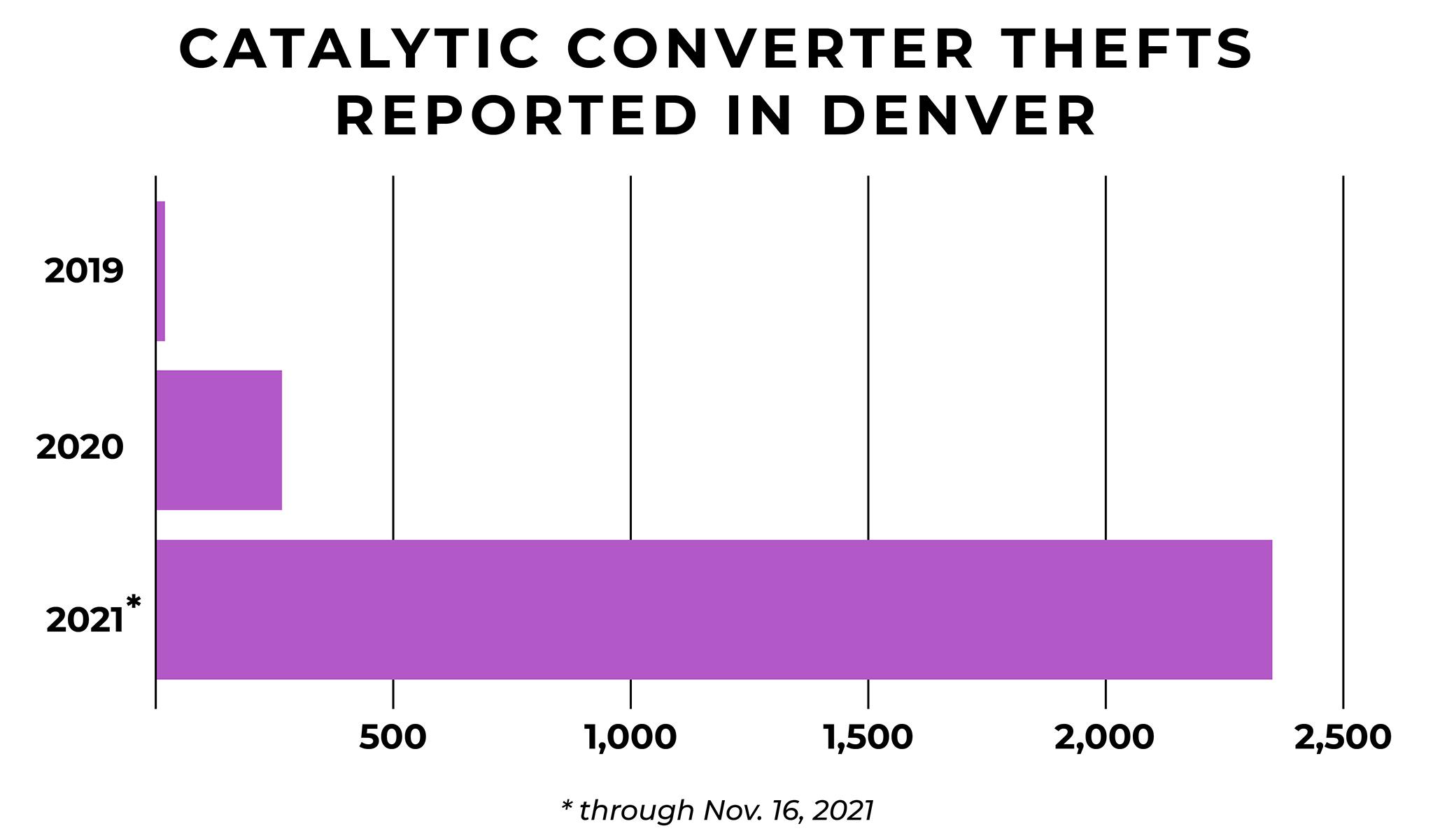
It's an issue happening across the nation, thanks to the pandemic.
According to the National Insurance Crime Bureau, a nonprofit focusing on vehicle insurance fraud and crime, 108 catalytic converter thefts occurred each month on average nationwide in 2018. That averaged jumped to more than 1,200 per month in 2020.
"We have seen a significant increase during the pandemic. It's an opportunistic crime. As the value of the precious metals contained within the catalytic converters continues to increase, so do the number of thefts of these devices," David Glawe, NICB president and chief executive, said in a statement from March. "There is a clear connection between times of crisis, limited resources, and disruption of the supply chain that drives investors towards these precious metals."
Central Park continues to be the hardest hit area for converter thefts. As of mid-November, 138 converters were stolen from the neighborhood, up from 73 at the end of June.
Northeast Park Hill is at 90 thefts, up from 57. Thefts in the Denver International Airport region increased from 27 to 71.
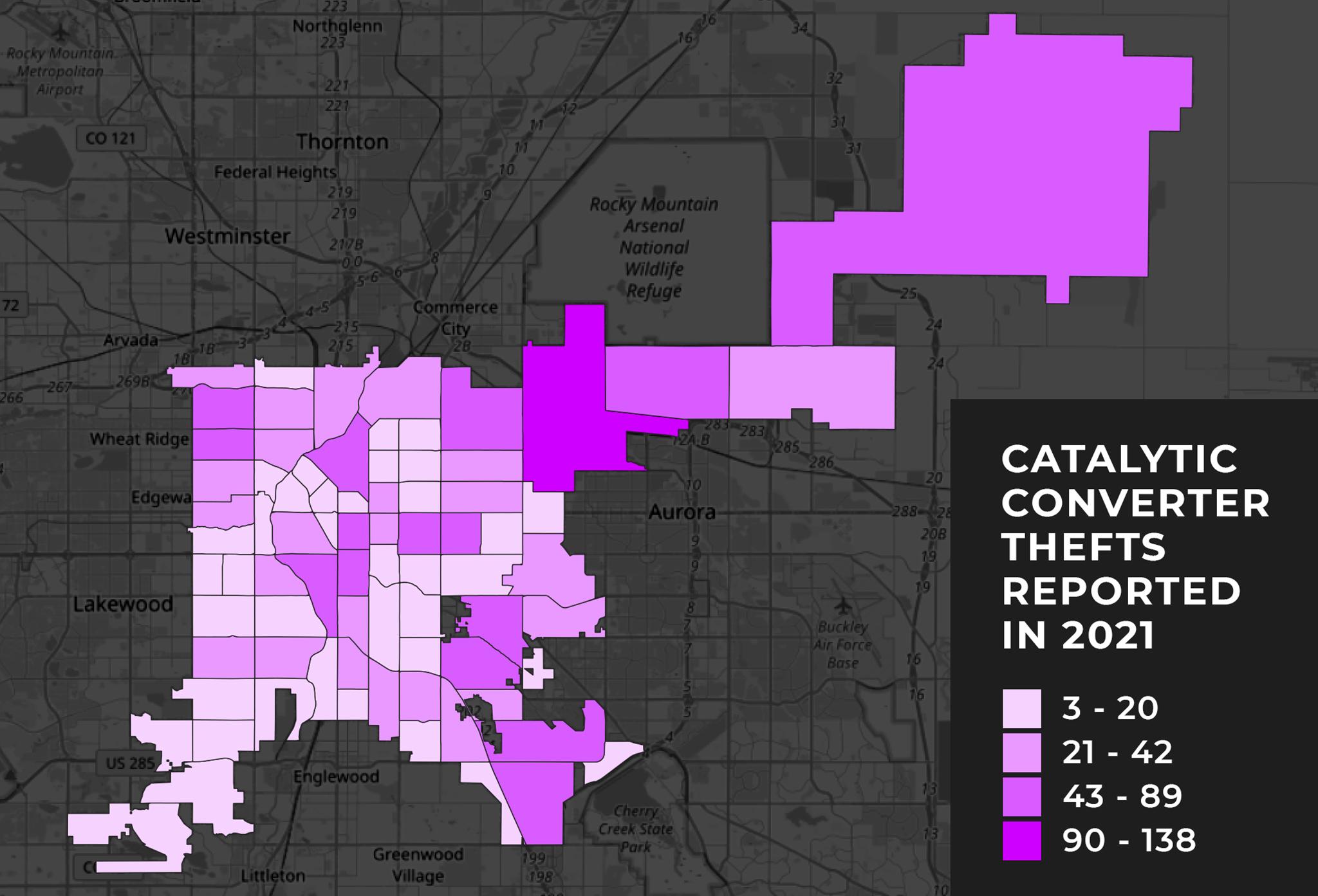
According to NICB, large vehicles such as pickups and delivery trucks are bigger targets because they have a higher clearance, making it easier to access the converters. Toyota Priuses and other hybrid vehicles are also high on the list because they tend to be less corroded and some hybrid vehicles have two converters.
Chuck Clark, the general manager of Colorado Junk Cars in Commerce City, previously told Denverite that on average, a converter sells for about $250. If the converter is stolen from a hybrid car, the value increases to $1,500. Large scraping yards may not take a converter from a single person, but Clark said Facebook Marketplace and Craigslist often have ads requesting converters for cash.
DPD said there are several methods to combat converter theft, such as heading to a mechanic to get the converter welded to the vehicle if it's attached by bolts. Some mechanics are also offering to put cages around converters.
DPD has also hosted several events at Lincoln College of Technology in Montbello where they've painted and etched vin numbers on converters to deter thieves and "create a means of tracing a stolen CC back to the theft case."
A spokesperson for DPD said the department has reached out to several metal recycling facilities, asking that they "look out for catalytic converters that have been spray painted or have some sort of serial number etched. The facilities were also asked to call the police if they receive more than three converters at one time."
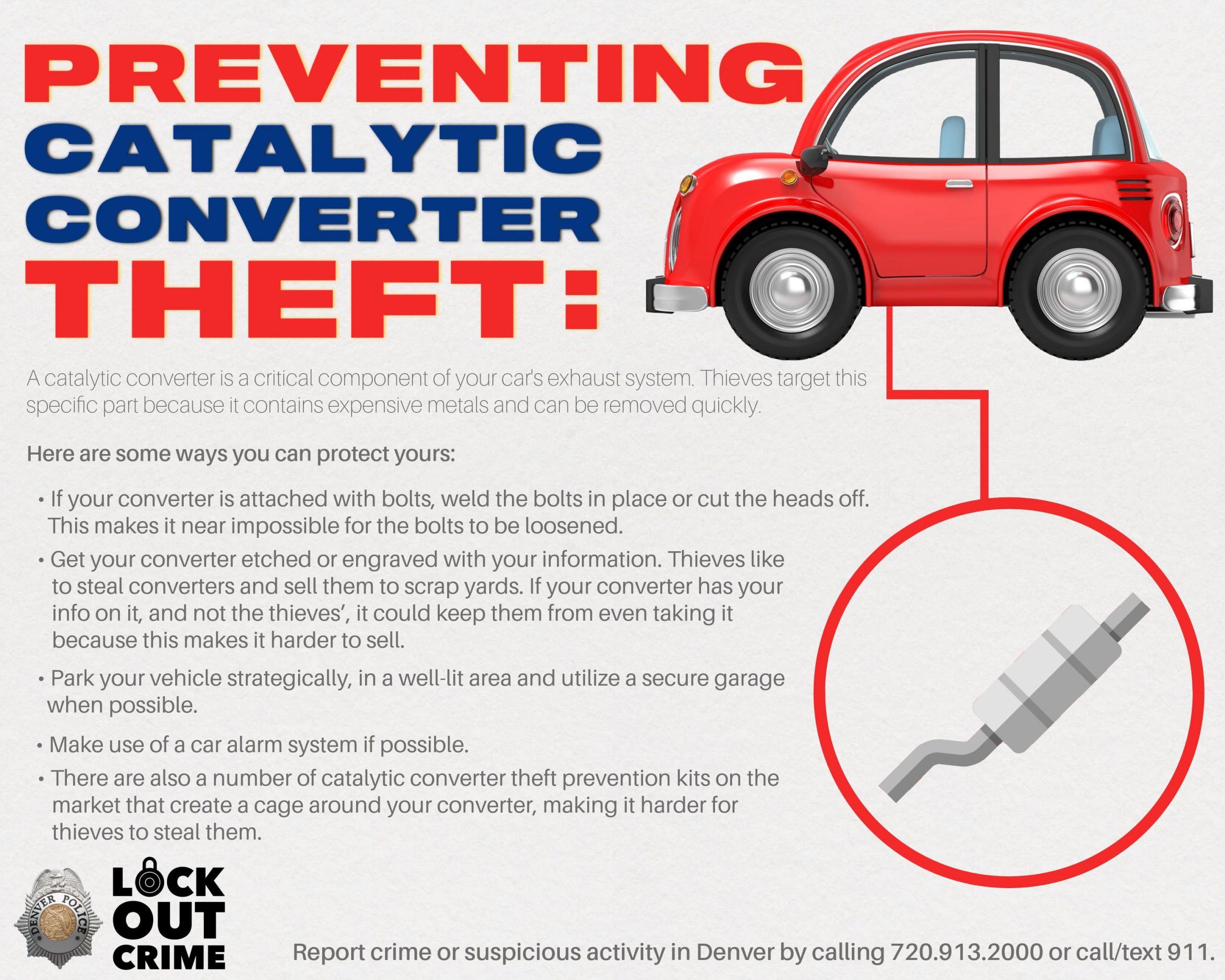
Clark said he hopes that once the mines are up and running, the price of converters will go down as materials become readily available.
But for now, he said there isn't much residents can do.

